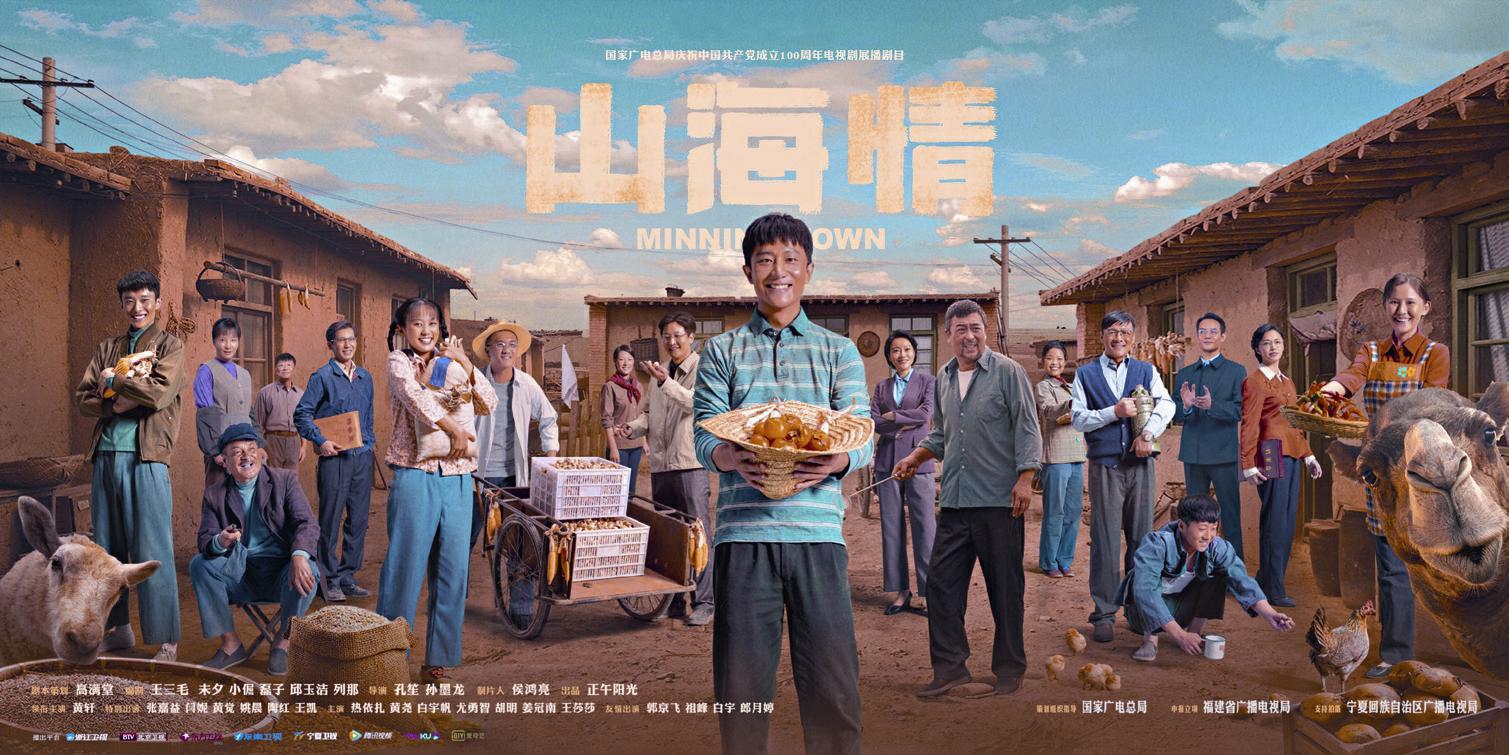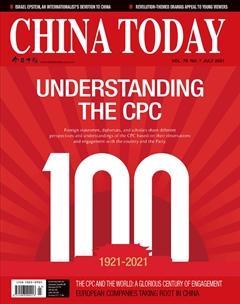Revolution-themed Dramas Appeal to Young Viewers
By staff reporter ZHOU LIN

IN recent months, patriotic TV dramas that feature elements of the Communist Party of Chinas (CPC) history have been a big hit with young audiences. The Awakening Age is among the most popular revolution-themed TV series, rated 9.3 out of 10 on Chinas social media review platform Douban. The rating is still on the rise. The series started with the birth of Xin Qingnian Zazhi (New Youth Magazine or La Jeunesse) in 1915 and then tells the story of the consecutive events, including the New Culture Movement originating in Peking University in the 1910s, the May Fourth Movement in 1919, and then the founding of the CPC in 1921.
Great yet Ordinary
In the TV series, Cai Yuanpei, Li Dazhao, Chen Duxiu, Hu Shi, Lu Xun, Mao Zedong, and Zhou Enlai– the prominent scholars and thinkers, revolutionary pioneers, and passionate youth in Chinese history are portrayed in vivid lifelike performances. Their pursuit of truth and exploration for a way to lead China out of backwardness is the epitome of early dissemination of Marxism-Leninism theory in China.
“It breaks the stereotypes of some previous patri- otic works being too serious and boring with clichéd plots. Instead, it is candid about the various problems and setbacks the founding fathers encountered, offering another perspective into the CPCs history,”said a comment on Sina Weibo, Chinas Twitter-like microblog. It is the unremitting efforts and pioneering spirit of the characters portrayed that has moved todays youth. Some young viewers even reopened history books while watching the shows to better understand them.
On Weibo, topics under the hashtag “The Awakening Age” have been viewed millions of times and discussed by numerous followers. “The images of the chosen actors seem so close to real characters,” one of them marveled. Actually, the actors made great efforts to make characters more lifelike and vivid. With the subtle production and meticulous storytelling, the series is expected to provoke deeper thinking in the audience.
On April 17, a seminar on the epic drama The Awakening Age was held in Beijing. Zhang Yongxin, director of the TV series, shared his views on the shaping of characters. For him, the art of the film and TV lies in making characters come alive. The leading actors need to understand the roles profoundly and present every dimension of their characters, showing their charm, as well as their achievements and losses. Only with authenticity and a real respect for history can the performance be convincing, said Zhang.
The series has done a great job in showing the ordinary part of great historical figures by integrating specific and subtle storytelling into the historical background. For example, Li Dazhao, one of the central founders of the CPC, was also an affectionate husband and a loving father to two children; while Chen Duxiu, a leading intellectual of the New Culture Movement and co-founder of the CPC, had always been challenged by his two adolescent sons who refused his strict parenting style. These details have made the characters more vivid, thus striking a chord with audiences.
Work of Arts
As the CPC celebrates its 100th anniversary this year, Zhang said, “Making a production that can truly reflect the spirit of the times, and the national spirit, is a big challenge but also a breakthrough.”
The production crew put great efforts into restoring the historical scenes of that time, including the atmosphere, the costumes, props, the environment, and the mental outlook of the historical figures.
From metal buttons on the uniforms and the paper of the magazines, to the jujube trees in the courtyard and furnishings of the then ministry of foreign affairs, all the props and settings were made to the original size using the same material. The Red Building, former home of Peking University and the birthplace of the May Fourth Movement, was also reproduced in the play.
Moreover, the crew used many metaphors in its storytelling. When Chen Duxiu delivered the inaugural speech for New Youth Magazine at Aurora University, a private college at the time in Shanghai, an ant crawled back and forth on the microphone. The appearance of the tiny creature implies the Chinese peoples unremitting quest to save China in an era of tremendous changes, showing their confusion and anxiety in the historic transition.
Woodcut, a popular art form among the general public at the time, helped boost the morale of the military and civilians. It was also used in the drama, symbolizing the countrys evolution, and displaying the revolutionary spirit of the characters. The stark contrast between black and white of the art form also creates a sense of profoundness. In addition to that, the Chinese ink-painting style setting with warm colors was added in to create an idealists feeling of romance, highlighted with powerful cinematography techniques, which altogether perfectly presented the landscape of the times.
Kindling Patriotism among the Youth
On social media platforms mainly dominated by young people such as Weibo, WeChat, Douyin, and Bilibili – Chinas most popular streaming website, discussions on The Awakening Age continue to increase. According to incomplete statistics, the total number of topics on Weibo relating to the series has exceeded 2.3 billion. The comments have aroused the curiosity of more netizens who are eager to watch the series.
The Awakening Age is not the first patriotic drama about the CPCs history that has been trending in the past months. Minning Town, a series released in January, tells a story about a group of young people from southeast Chinas Fujian Province, who devoted themselves to poverty alleviation work in northwest Chinas Ningxia Hui Autonomous Region. It has also been favorably received. Other popular dramas include Like a Flowing River II, Roving Inspection Team, and Ideals Shine in China.
Why are these TV series popular among the young people? Zhang Bin, a professor of the Shanghai Film Academy Department at Shanghai University, responded to this query in an article written for The Wenhui Daily published on April 8, 2021. “This kind of TV series is a mirror in which the young people see themselves, struggling and growing together with the nations destiny,” Zhang wrote. He noted that these TV dramas have improved from a stereotyped, even propagandized mode, to a more substantial and multidimensional format, thus gaining popularity among the young. Through subtle artistic framing, the shows successfully created artistic space where dialogues of ideas and thinking with the youth are possible.
“They are just my age, but they are bearing such great responsibility,” a netizen posted on Weibo. From these words, it is not hard to understand why the series has gained recognition, especially from young viewers, and has inspired the young generation to carry forward the spirit of the Party pioneers and forge ahead into the future.

